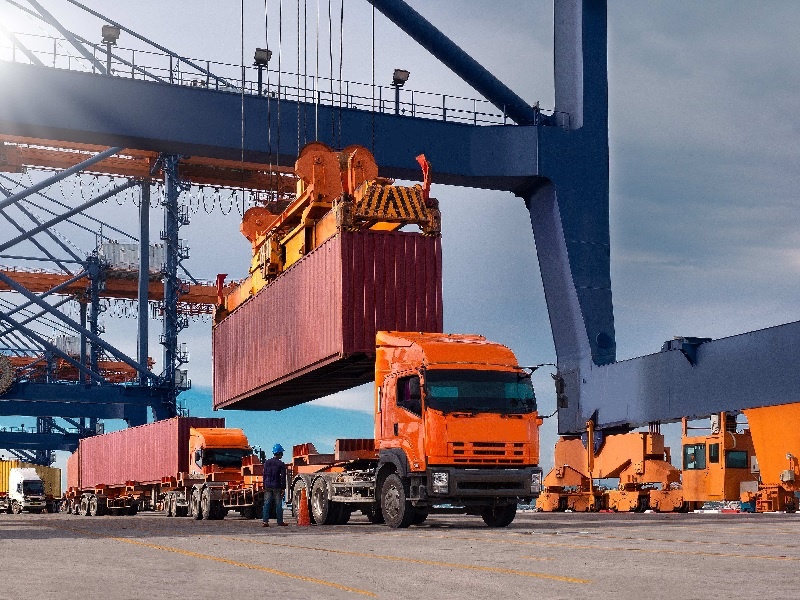Economic growth hinges on geopolitical outcomes
 |
| Economic growth hinges on geopolitical outcomes, illustration photo |
“The escalating conflict between Russia and Ukraine is entailing a spike in the price of many commodities and input materials, putting Vietnam’s inflation under big pressure,” said Phan Duc Hieu, member of the National Assembly’s Economic Committee.
Many other experts are like-minded. Due to soaring fuel prices in the global market, the ministries of finance and industry and trade have adjusted the price of petrol to $1.3 per litre, a record level since 2005. With the current situation, the petrol price is expected to further swell in the upcoming time.
Meanwhile, the gold price in the domestic market has surpassed $3,000 per tael, in parallel to constantly increasing steel and fertiliser prices. “This would significantly drive up the living and production costs of people and businesses,” Hieu noted.
Can Van Luc, senior financial expert, and his research team at state-owned lender BIDV outline that the Russia-Ukraine conflict could dampen the country’s economic growth and inflation control efforts, thereby placing pressure on economic management, particularly monetary policies.
The team estimated that the Russia-Ukraine conflict might push up fuel prices by 30-40 per cent on average compared to early 2022, causing a trade deficit associated with petroleum products of up to $9 billion this year, compared to a mere $6.3 billion in 2021.
Likewise, the average consumer price index would pick up 0.8-1 percentage points to 3.8-4.2 per cent this year, which is in line with the forecast earlier presented by the National Centre for Socio-Economic Information and Forecasting (NCSIF).
Experts assumed that the Russia-Ukraine conflict would have widespread impacts across the board. Accordingly, the fertiliser price could reach another peak, along with swelling animal feed costs – both of which can dampen agricultural production.
A sharp jump in steel prices – a pivotal constituent in building material costs – might also slow down the disbursement of public investments, countering the government’s commitment to accelerate the pace and ensure a smooth economic rebound by 2023.
Nevertheless, experts assumed that the conflict might also entail several positive factors. In the past week, a number of global firms have left Russia, providing an opportunity for Vietnam to receive those capital inflows.
From another angle, Vu Tien Loc, chairman of the Vietnam International Arbitration Centre, said that now is the right time for Vietnam to deepen its roots in the Russian market, capitalising on export facilitation. The value of the mutual trade just amounted to $7.3 billion last year, with investment flows from Russia to Vietnam $953.7 billion.
More costly oil prices could also be beneficial to Vietnam’s oil and gas sector. According to the Ministry of Finance, thanks to rising oil prices, the state’s income from crude oil hiked 28 per cent in the first two months of 2022.
Higher oil prices have also brought a wanted boost in performance for state-owned oil and gas group PetroVietnam, which harvested a 34-per-cent jump in the total revenues in the first two months of this year and a 52-per-cent jump in its budget contribution during the period.
With a more prudent mindset, Deputy Minister of Planning and Investment Tran Quoc Phuong noted that despite these benefits, there are repercussions for Vietnam’s economy, with escalating oil prices posing a real threat to inflation control and to maintaining macroeconomic stability.
Hieu also raised concerns the conflict could overshadow Vietnam’s economic rebound endeavours. The government, therefore, would need to hasten the enactment of policies and facilitate enforcement of policies aiding economic rebound, Hieu stated.
Luc estimated that, in the case of high inflation leading to the adjustment of economic management policies, Vietnam’s GDP growth could lose 1-1.3 per cent. The economy, therefore, would only expand 5.7-5.9 per cent this year, possibly even less.
“Vietnam’s economy faces a big challenge in achieving 6-6.5 per cent growth and controlling inflation at around 4 per cent this year,” Luc said.
Earlier, Luong Van Khoi, deputy director of the NCSIF, calculated that if the oil price is at $100 per barrel, it will reduce Vietnam’s economic growth by 0.2 per cent. If oil prices are at $140 per barrel, the drop could be as much as 0.4 per cent.
“This is just regarding the oil price scenario. But there are many other factors instrumental to global economic growth, commodity supply chains, and global financial markets which all have impacts on Vietnam’s economic growth,” Khoi said.
What the stars mean:
★ Poor ★ ★ Promising ★★★ Good ★★★★ Very good ★★★★★ Exceptional
Related Contents
Latest News
More News
- IP alterations shape asset strategies for local investors (January 22, 2026 | 10:00)
- 14th National Party Congress: Vietnam - positive factor for peace, sustainable development (January 22, 2026 | 09:46)
- Japanese legislator confident in CPV's role in advancing Vietnam’s growth (January 22, 2026 | 09:30)
- 14th National Party Congress: France-based scholar singles out institutional reform as key breakthrough (January 21, 2026 | 09:59)
- 14th National Party Congress: Promoting OV's role in driving sustainable development (January 20, 2026 | 09:31)
- 14th National Party Congress affirms Party’s leadership role, Vietnam’s right to self-determined development (January 20, 2026 | 09:27)
- Direction ahead for low-carbon development finance in Vietnam (January 14, 2026 | 09:58)
- Vietnam opens arms wide to talent with high-tech nous (December 23, 2025 | 09:00)
- Why global standards matter in digital world (December 18, 2025 | 15:42)
- Opportunities reshaped by disciplined capital aspects (December 08, 2025 | 10:05)

 Tag:
Tag:




















 Mobile Version
Mobile Version